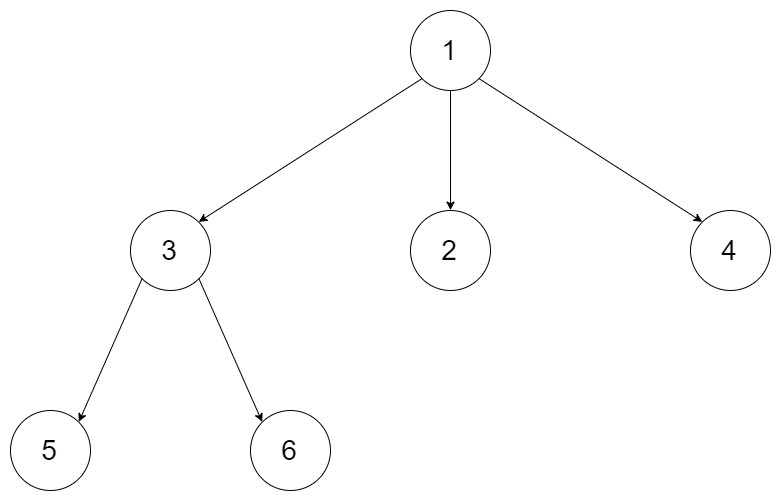429. N-ary Tree Level Order Traversal
Given an n-ary tree, return the level order traversal of its nodes' values. (ie, from left to right, level by level).
For example, given a 3-ary tree:

We should return its level order traversal:
[
[1],
[3,2,4],
[5,6]
]
Note:
- The depth of the tree is at most
1000. - The total number of nodes is at most
5000.
前序遍历时记录节点位于那一层。
#include<vector> #include <cstdlib> #include<iostream> #include <unordered_set> #include <algorithm> #include<string> using namespace std; // Definition for a Node. class Node { public: int val = NULL; vector<Node *> children; Node() {} Node(int _val, vector<Node *> _children) { val = _val; children = _children; } }; class Solution { public: vector<vector<int>> levelOrder(Node *root) { vector<vector<int>> res; preorder(root, res, 0); return res; } void preorder(Node *root, vector<vector<int>> &res, int level) { if (root == NULL) return; if (res.size() < level + 1) res.push_back({}); res[level].push_back(root->val); for (int i = 0; i < root->children.size(); ++i) { preorder(root->children[i], res, level + 1); } } }; int main() { Node *node5 = new Node(5, {}); Node *node6 = new Node(6, {}); Node *node3 = new Node(3, {node5, node6}); Node *node2 = new Node(2, {}); Node *node4 = new Node(4, {}); Node *node1 = new Node(1, {node3, node2, node4}); Solution solution; vector<vector<int>> res = solution.levelOrder(node1); for (int i = 0; i < res.size(); ++i) { for (int j = 0; j < res[i].size(); ++j) cout << res[i][j] << " "; cout << endl; } return 0; }
效率比较低,只超过了3.97的提交
Your runtime beats 3.97 % of cpp submissions.
参考讨论区,使用队列存储节点指针。每次while循环开始时,队列中存储了一层的所有节点指针。这时候 Your runtime beats 12.71 % of cpp
class Solution { public: vector<vector<int>> levelOrder(Node *root) { vector<vector<int>> res; if (root == NULL) return res; queue<Node *> q; q.push(root); while (!q.empty()) { vector<int> level; int size = q.size(); for (int i = 0; i < size; ++i) { Node *top = q.front(); q.pop(); level.push_back(top->val); for (int j = 0; j < top->children.size(); ++j) { q.push(top->children[j]); } } // for (int i = 0; i < level.size(); ++i) // cout << level[i] << " "; // cout << endl; res.push_back(level); } return res; } };



 浙公网安备 33010602011771号
浙公网安备 33010602011771号